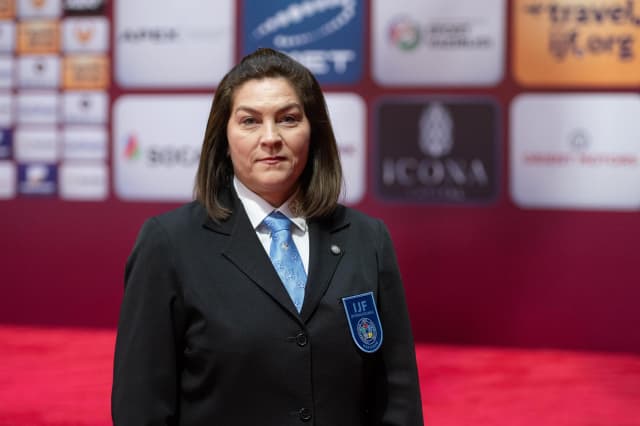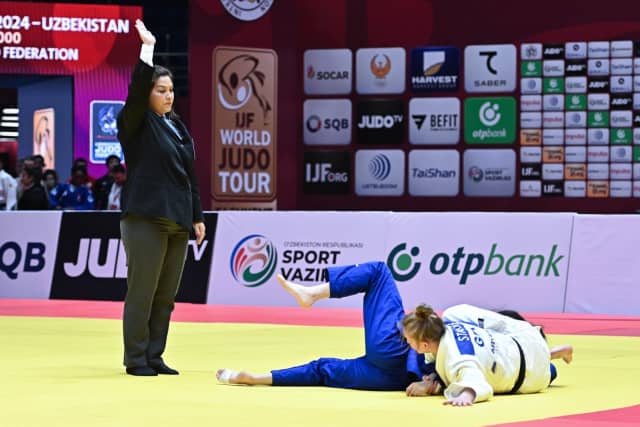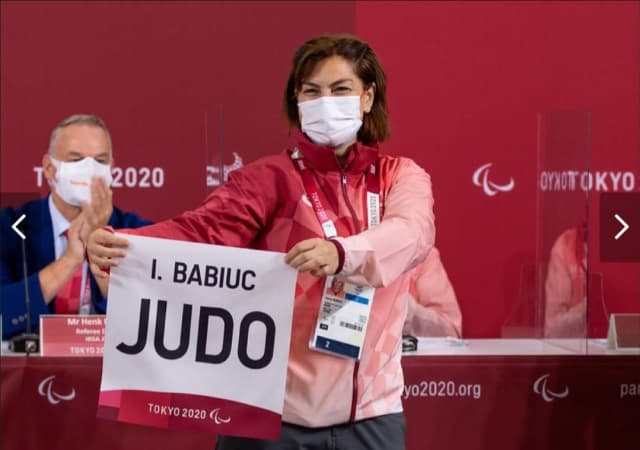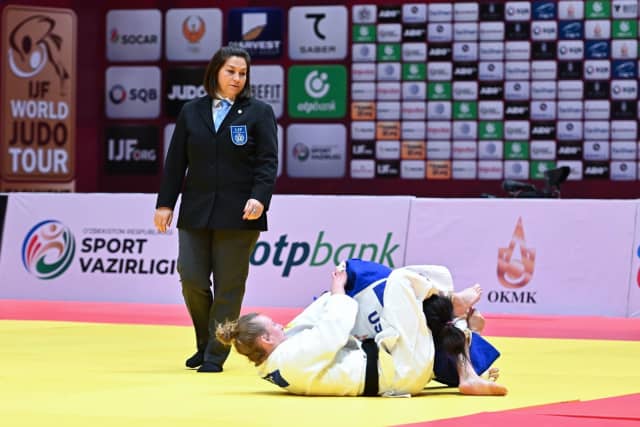The career span of an elite referee is short, just as it is for top athletes, the majority of Olympic referees officiating at one Olympic Games, some reaching two full cycles and very occasionally someone may reach 3 or 4 but this is rare.
Number 2 in the current referees’ world ranking is Ioana Babiuc (ROU). She was selected to referee in London at the 2012 Olympic Games but didn’t make the cut in Rio, 4 years later. For the Tokyo Games she was part of the Paralympic refereeing team and now, 3 years after that, she is second in the world ranking and preparing to do her best in Paris.
“It’s a hard job behind the scenes, there is really a lot of work to do to become good in this role. I have a lot of experience from a lot of events and with some good results. When I was younger, I didn’t always consider refereeing as important because in my mind the athletes are the most crucial part but as I have developed in this environment, I understand more and more that our role, in part, is to ensure that the athletes remain in the centre of the sport."
"I was selected for London but have waited for 3 more cycles to come back to the Olympic Games and even now the selection is not assured. I look back and I know I was too young in London. I felt ‘wow’ like I had arrived but I knew I was too young for it. Since then I have trusted myself more and perhaps that still wasn’t correct or enough leading up to Rio, perhaps I still was not confident enough.
Our bodies and minds have to listen and feel. Sometimes we make mistakes, any distraction can show us to be human but I am training always with this in mind, to stay at the level, to be able to do the best job at the Paris Olympic Games.
It was a shock when I saw the official list for Rio de Janeiro in 2016 and I wasn’t selected. I felt like I couldn’t pull my things together. Of course I must have been missing something to not make the list but I didn’t know what so immediately I decided to be stronger and to enjoy being around judo people. It’s really a judo family here. I choose to get better and better and I work at it. If you consider that at any given time you are not the best, then continue to fight for it. Without dreams, your life is aiming at nothing. I continue to have dreams, always.
After the disappointment of Rio, the Paralympic Games in Tokyo was a fantastic experience. I’m glad that the IJF supported this programme and now I have another different high level experience. We can take many different things from this life, from the Olympics, the Paralympics, from good relationships with judoka. We need to collect experiences to make us feel whole in judo.
As well as developing myself, going to IBSA was also to give back. These athletes deserves to have the support of the whole judo family. I enjoy it and feel I really contribute in the right way. It requires a different set of skills and I am glad to have had the opportunity to improve my knowledge in this way. Perhaps the athletes competing at the Paralympics haven’t had the same luck as me but they deserve no less from our sport.
I will finish my refereeing career after this Olympic Games. I am a coach too and feel I can give a lot to the judo children, to my club and athletes and to junior referees, perhaps contributing to the development of judo. The young ones need to be guided and I think my strong experiences can help them.
Even this weekend, I have one judoka competing in Bosnia and 19 in an event at home in Romania. The young ones are the future of the sport and if they grow up with good techniques and philosophy they can continue on the path and lead our sport in a good way. It’s not possible to coach and referee at this level at the same time. So, now I am a club coach and an international referee but as I move more into coaching after Paris, I can really have an influence on the young, teaching them to understand they must work like crazy to get to the top, it is not an accident to become good at something.
I feel I am a complete referee now and it is time to share. We must all touch this feeling; perhaps if everyone could then maybe the world can be better. After all these years, our job is not just about us, but is about everything and everyone around us. I feel ready to share everything I learned.”
Ioana’s plan is clear, to work hard to be the best referee she can be before working hard to become the best coach she can be; there’s a theme here! Work is the key.
When asked, for the purposes of the fast approaching International Women’s Day on 8th March, whether gender has been an issue for her, Ioana had the most positive answer, “Working for what we want is the message. I never felt any discrimination in international refereeing. Being a woman in this role has never been an issue for me. In this career we are truly equal. I do my job with no mention of gender, I’m just a good referee and I worked to get to this place. I love to meet with coaches and athletes, many of whom come to ask questions, understanding that my role can help them improve something. They don’t even think about whether I am a man or a woman, they just trust my experience. Helping someone in the right moment is the point. I will stay within the judo family one way or another, I have to!”






